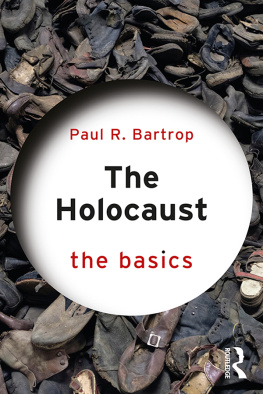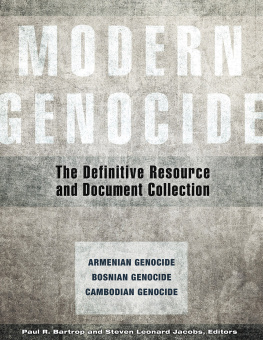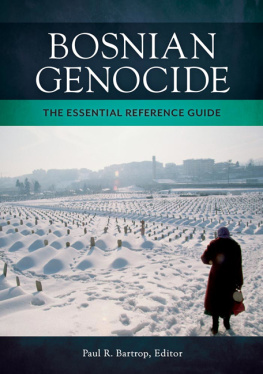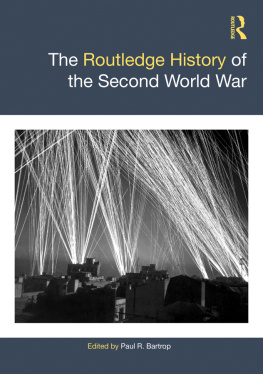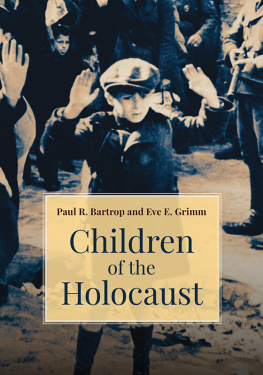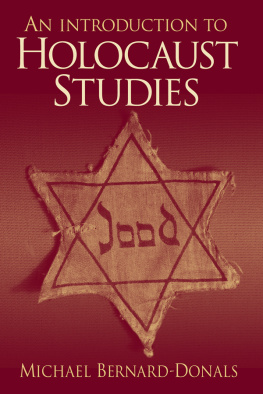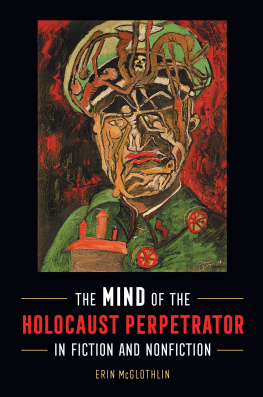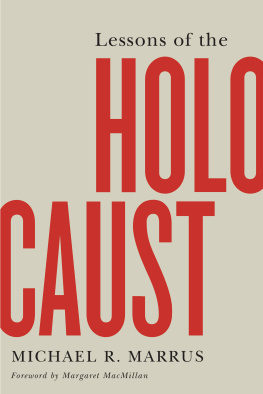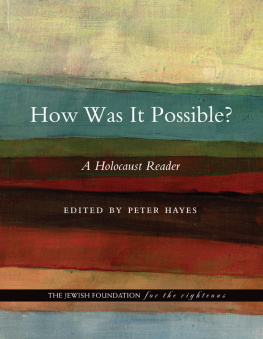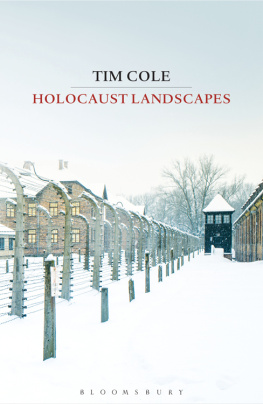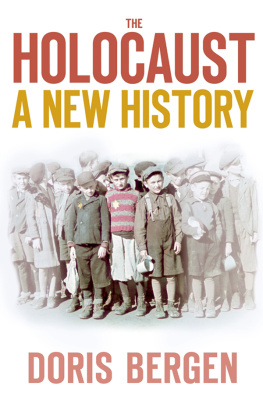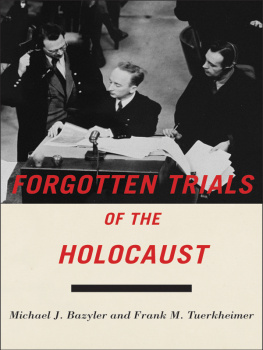The Holocaust: The Basics is a concise introduction to the study of this seismic event in mid twentieth-century human history.
The book takes an original approach as both a narrative and thematic introduction to the topic, and provides a core foundation for readers embarking upon their own study. It examines a range of perspectives and subjects surrounding the Holocaust, including:
- the perpetrators of the Holocaust
- the victims
- resistance to the Holocaust
- liberation
- legacies and survivors memories of the Holocaust.
Supported by a chronology, glossary, questions for discussion, and boxed case studies that focus the readers thoughts and develop their appreciation of the subjects considered more broadly, The Holocaust: The Basics is the ideal introduction to this controversial and widely debated topic for both students and the more general reader.
Paul R. Bartrop is Professor of History and Director of the Center for Judaic, Holocaust, and Genocide Studies at Florida Gulf Coast University, Fort Myers, USA. He is the author or editor of over twenty books, including the Routledge titles Genocide: The Basics (2015); Fifty Key Thinkers on the Holocaust and Genocide (2011); and The Genocide Studies Reader (2009).
THE BASICS SERIES
NARRATIVE
BRONWEN THOMAS
PHILOSOPHY (FIFTH EDITION)
NIGEL WARBURTON
POETRY (THIRD EDITION)
JEFFREY WAINWRIGHT
THE QURAN (SECOND EDITION)
MASSIMO CAMPANINI
RACE AND ETHNICITY
PETER KIVISTO AND PAUL R. CROLL
RELIGION (SECOND EDITION)
MALORY NYE
RELIGION AND SCIENCE
PHILIP CLAYTON
RESEARCH METHODS (SECOND EDITION)
NICHOLAS WALLIMAN
ROMAN CATHOLICISM (SECOND EDITION)
MICHAEL WALSH
SHAKESPEARE (THIRD EDITION)
SEAN MCEVOY
TERRORISM
JAMES LUTZ AND BRENDA LUTZ
WITCHCRAFT
MARION GIBSON
WOMENS STUDIES
BONNIE SMITH
WORLD HISTORY
PETER N. STEARNS
RESEARCH METHODS
NICHOLAS WALLIMAN
THE HOLOCAUST
PAUL R. BARTROP
For a full list of titles in this series, please visit www.routledge.com/The-Basics/book-series/B
First published 2020
by Routledge
2 Park Square, Milton Park, Abingdon, Oxon OX14 4RN
and by Routledge
52 Vanderbilt Avenue, New York, NY 10017
Routledge is an imprint of the Taylor & Francis Group, an informa business
2020 Paul R. Bartrop
The right of Paul R. Bartrop to be identified as author of this work has been asserted by him in accordance with sections 77 and 78 of the Copyright, Designs and Patents Act 1988.
All rights reserved. No part of this book may be reprinted or reproduced or utilised in any form or by any electronic, mechanical, or other means, now known or hereafter invented, including photocopying and recording, or in any information storage or retrieval system, without permission in writing from the publishers.
Trademark notice: Product or corporate names may be trademarks or registered trademarks, and are used only for identification and explanation without intent to infringe.
Library of Congress Cataloging-in-Publication Data
Names: Bartrop, Paul R. (Paul Robert), 1955- author.
Title: The Holocaust : the basics / Paul R. Bartrop.
Description: First edition. | New York : Taylor and Francis, [2019] | Includes bibliographical references and index. |
Identifiers: LCCN 2019010298 (print) | LCCN 2019010672 (ebook)
Subjects: LCSH: Holocaust, Jewish (1939-1945)--History.
Classification: LCC D804.3 (ebook) | LCC D804.3 .B36365 2019 (print) | DDC 940.53/18--dc23
LC record available at https://lccn.loc.gov/2019010298
ISBN: 978-1-138-57418-2 (hbk)
ISBN: 978-1-138-57419-9 (pbk)
ISBN: 978-0-203-70119-5 (ebk)
The Holocaustthe attempt by the Nazi regime of Germany to remove and then exterminate the Jews of Europe between 1933 and 1945is arguably one of the most discussed topics of recent history. Writing about it is a massive assignment in view of the need for precision and, at the same time, comprehension. My hope is that in this short book I have been successful in managing to contextualize and explain the major contours of that terrible event.
The book is intended as a teaching tool as well as a volume to be read by a general audiencethough much, it must be said, makes for depressing reading given its subject matter. Yet in addition to the horrors being recounted, there are stories of inspiration here as well, as we read of those who stood up to the Nazis and worked to thwart their destructive aims.
In seeking to provide a comprehensive introduction to the multifaceted phenomenon that was the Holocaust, I have been accompanied by the questions posed by my many students, in several institutions and levels on two continents, over the past three decades. The chapters in this book are a mirror of their concerns, and, I hope, will resonate with readers today.
There are two people to whom I must proffer my humble gratitude for their assistance in putting this small volume together. Each read every word in draft form, and each made valuable suggestions which enhanced the whole project in many ways. Michael Dickerman, with whom I had worked earlier on a major Holocaust encyclopedia project, brought his extraordinary editorial skills to the task, showing me along the way that his talents are many, varied, and immensely valuable.
Eve E. Grimm, with whom I have also published on aspects of the Holocaust, kept my writing honest and insisted that this was a project to which I could bring new understandings despite my own reservations.
A further vote of thanks is due to my publisher at Routledge, Dr. Eve Setch, who has been an exceptional guide from the time this project was first suggested as a complement to my earlier Genocide: The Basics. I have been blessed in being able to work with such a consummate and highly skilled professional. I also want to thank her assistant, Zoe Thomson, with whom I have just started working.
Writing a book of this length, on such a massive topic, has presented one major problem, which must be addressed here by way of a disclaimer; given the relative sizes of both the volume and the subject, there were only a limited number of areas it could cover. I have often found myself frustrated at not being able to introduce (much less develop) certain themes which, I am sure, some will say should have been explored here. With that in mind, I will only say this: the book you have in your hand is an introduction only, and makes no pretense at being the last word. Accordingly, I urge anyone holding it to go out and extend its boundariesand do it now. Its never too late to make a better world.
Paul R. Bartrop
Fort Myers, Florida
When looking at the Holocaust it is always advisable, as survivor Elie Wiesel has told us, to begin with tales. As he wrote in an essay as long ago as 1976:

